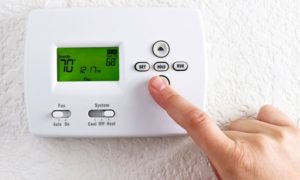
Regular Maintenance
If you want your system to run smoothly and efficiently then you need to look after it so it can look after you. That means regular maintenance throughout the year, but also having a professional come check it over before the change in season truly begins. Following summer there is a lot of buildup in the unit which just adds more stress to it making it less efficient.
The technician will check the filters, tighten belts and bolts, and clean your system properly so it’s ready to go.
System Upgrade
Your system may be outdated, but that doesn’t mean you need a brand new one. Your HVAC professional may be able to help you by providing the system with various upgrades to improve its efficiency. This includes zoning, the installation of a humidifier, a thermostat you can program or using a more efficient filter.
Insulation Issues
The insulation in your home plays a major role in how efficient your heating system is. There are different ways you can improve this. The first and most cost-efficient is to do a full walk of the doors and windows in your home and ensure they are properly sealed and there are no drafts. The next walk should include attic, crawlspaces, and basements to make sure there are no small cracks which could allow for cold air to enter or warm air to escape. Don’t forget to check the outer walls for cracks to seal. Once you have done that you can shore up your insulation if necessary. This doesn’t just help the heating situation, it also allows you to manage humidity, too. You may also need to check the ductwork for cracks or areas that are allowing air to escape.
Other tips
Other helpful ways to get the most from your heating system include curtains. You can hang curtains over doors as well as windows, so if you have a particularly problematic door/window choose a heavy curtain to block some of the problem out.
Generally, your air filters should be replaced four times a year, however, changing it monthly during the times you use it the most could make a major difference to your energy bill and the temperature in your home. Don’t forget to have a full system checkup at least once a year. You can try insulating your pipes with a blanket or some type of other cover. It just means that it won’t need to work as hard to heat your water. It could also prevent burst pipes.
As a bonus: a dirty refrigerator can make a difference to the overall temperature of your home. Yes, really. Just take a look at the back of it for the condenser coils. If they are dirty then your fridge is working too hard and increasing your energy bill. Check the seals on your fridge, too, this is just another way you’re affecting your energy bills.

